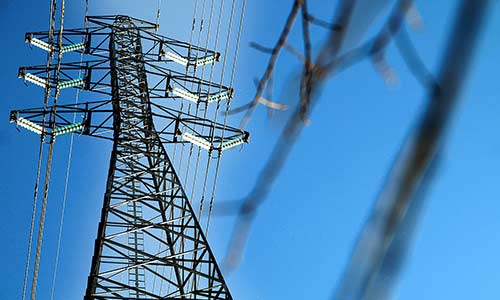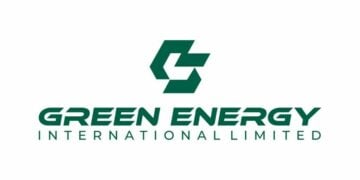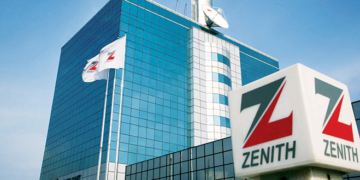Electricity Distribution Companies (DisCos) operating in Nigeria’s electricity supply industry generated N263 billion in revenue in the second quarter of 2023, data from the National Bureau of Statistics (NBS) has shown.
This is as some stakeholders have challenged the decision of the Nigerian Electricity Regulatory Commission(NERC) to increase the price of prepaid electricity meters in the country.
The bureau revealed this in its Nigeria electricity report detailing energy billed, revenue generated and customers by DisCos (Q2 2023) published on Friday.
The NBS said revenue collected by the Discos during the period was N263.08 billion from N247.33 billion in Q1 2023.
On a year-on-year basis, revenue generated in the reference period rose by 39.63 per cent from N188.41 billion recorded in Q2 2022.
According to the report, total customer numbers in Q2 2023 stood at 11.47 million from 11.27 million in Q1 2023, showing an increase of 1.84 per cent.
On a year-on-year basis, the NBS said customer numbers in Q2 2023 rose by 6.17 per cent from 10.81 million reported in Q2 2022.
Similarly, it said metered customers stood at 5.47 million in Q2 2023, indicating a growth of 3.10 per cent from 5.31 million recorded in the preceding quarter.
“On a year-on-year basis, this grew by 10.40 per cent from the figure reported in Q2 2022 which was 4.96 million.”
In addition, the bureau said estimated customers during the quarter were 6.00 million, higher by 0.72 per cent from 5.96 million in Q1 2023.
“On a year-on-year basis, estimated customers increased by 2.58 per cent in Q2 2023 from 5.85 million in Q2 2022.
“Electricity supply was 5,909.83 (Gwh) in Q2 2023 from 5,851.87 (Gwh) in the previous quarter.
“However, on a year-on-year basis, electricity supply increased by 13.06 per cent compared to 5,226.97 (Gwh) reported in Q2 2022,” the report said.
Meanwhile, there have been plethora of complaints from consumers and critical stakeholders mostly challenging the increase in meter prices
LEADERSHIP reports the hike announcement was contained in a NERC ‘order’ signed on Tuesday by its chairman, Mr Sanusi Garba and the commissioner, Legal, Licensing & Compliance, Mr Dafe Akpeneye obtained by newsmen on Wednesday in Abuja.
The commission, in the order, said, a single-phase prepaid meter would now cost N81,975.16 from the N58,661.69 while three-phase pre-paid meters would cost N143,836.10 from N109,684.36.
The commission also stated that the approved meter prices were exclusive of the 7.5 per cent Value Added Tax (VAT).
Speaking with our Correspondent on the price review, the president, Nigeria Consumer Protection Network, Kunle Kola Olubiyo said, the NERC has failed in working out modalities of refund through token recharge for customers to recover cost of procuring the meter.
He said, elsewhere outside Nigeria, cost of meter is not above $300 or about N24,000.
Olubiyo argued on the SLA that the burden of meter procurement should not be placed on the shoulders of consumer as it is considered as part of production instrument.
“It is a production tool for which the DisCo is used to measure energy usage to be able to recover cost. It is therefore their responsibility to provide such measuring tool. You could liken it to going to the petrol station with your meter or grocery to buy meat with your own scale. It doesn’t work like that.
“It was a clear policy direction that DisCos will provide the meters and let me tell you every tariff increase has meter recovery component added to it yet customers do not get refund,” he said.
According to him, “the 40 per cent increase in the price of
Single Phase Pre Paid Meters & 3 Phase Pre Paid Meters in Nigeria is not coming as a surprise considering the fact that the Importers of Meters and Meters Assembling Plants have over the last 12 months been making serious case for upward review of pre paid Meters.
They said, considering the fact that the now sourced forex from Parallel Market, recent increase in Customs Imports Duties / Customs charges, Devaluation of the Naira and other multiple charges by different Government Agencies at ports.
The Importers of the Pre Paid Meters and Meters Assembling Plants are of the views that appropriate Price of Single Phase Pre Paid Meters should be N90,000 .00 and that 3 Phase Pre Paid Meters should ordinarily be selling for N160,000 or more, he said.
He argued that, the Service Level Agreement is strictly an obligation/ pledged made by Electricity Distribution Companies / Distribution Licensees as a Condition Precedent to Acquisition of the Licensees.
“The Business of Provisions of Pre Paid Meters by the Electricity Distribution Companies as a means to guaranteed Revenue Efficiencies and Collection Efficiencies ordinarily should have been the Business between the Distribution Licensees and the Meters Assembling Plants or Vendors in Electricity Electricity Market Market be it Maximum Demand Meters, Single Phase Pre Paid Meters and Three Phase Pre Paid Meters.
“Metering devices in the prevailing circumstances are Electro Mechanical Devices designed to provide accuracy of measurement of usage of electricity and also aimed at providing energy accountability.” Olubiyo explained.
The role of Nigerian Electricity Management Services Agency has been that of routine test, type test, random test, certification and verification.
“As good as these may be, most of the electricity meter in the electricity market are not being submitted to Standard Organisation of Nigerian Primary Lab designed to carry out 100 per cent calibration of electricity meters using the
Global Standard of Metrology Benchmarks need in 100% Calibration of Pre Paid Meters, and Post Paid Meters be it Single Phase ,Three Phase Meters and Maximum Demand Meters.
“In the absence of 100 per cent calibration of Post Paid Meters and Pre Paid Meters by Standard Organisation of Nigeria
(not random Testing , Certification, Verification , Type Test , Routine Test), there are higher probability of serious comprises of any post paid meters and Pre paid meters in the market that is not properly calibrated”. he said.
He pointed out that the responsibility of calibration of Pre Paid meters rest squarely with Standard Organisation of Nigeria,and not with Meter Assembling Plants or Meter Importers , nor that of the Distribution Company/ Distribution Licensees or any other Institutions.
He further stated that the commission, in furtherance of the SLA, an undertaken provided by the Distribution Limited should put in place a firm commitments / framework that will guaranteed refunds of funding of acquisition or
purchase of Pre Paid Meters by Third Parties/ End Users Customers / Electricity Consumers as it were in the Electricity Market.
He said, considering the low income or disposable incomes of an average Nigerian End Users Customers, it might be difficult for many to afford the new rates without a mechanism for refunds electricity token and this may further increase the huge metering gaps in the electricity market.
Responding to the hike, the managing director and chief executive of MOJEC International Holdings, a conglomerate with subsidiaries in the power, energy sectors, Ms Chantelle Abdul, in a chat with our Correspondent, said the upward review in meter prices have become imperative in view of the logistics associated with importing the component parts of meters as well as moving the meters from the various factories to the customer sites.
Abdul, said that in the past, there were cheap meters installed but they were not as smart as what is being produced and installed today, adding, ‘In essence, they did not guarantee revenue assurance for the utility and accuracy of billing for the customers.’
She said further that, “as a company, Mojec in investing heavily in research and development geared towards redesigning cheaper meters that would not compromise on smart features in order to retain transparent billing. We are hopeful that we would be able to roll out these meters within the next couple of months.
“The new prices will also guarantee meter manufacturers will still be able to maintain their businesses and also retain their workforce. With the previous prices, complete closure of businesses would have occurred. The constant rise in the dollar is the main reason why prices had to go up inevitably.”
In justifying the hike, she said, the rise in the dollar has had a ripple effect on every commodity and also reduced the spending power of the general public as there was also a rise in inflation.
“If the previous prices of meters were retained and a sector like ours that gives jobs to millions of people is crushed, these people will be forced out of jobs.’ she added.





